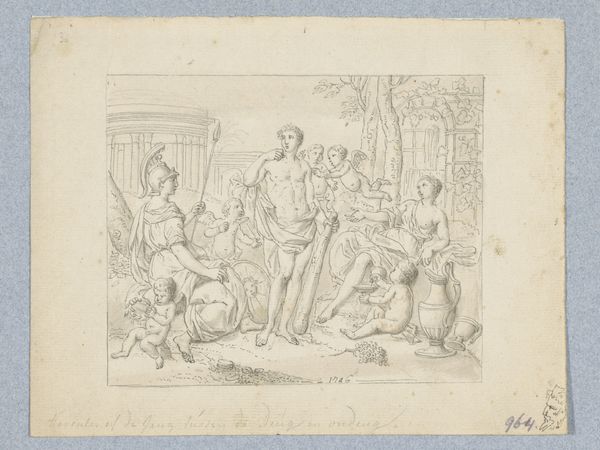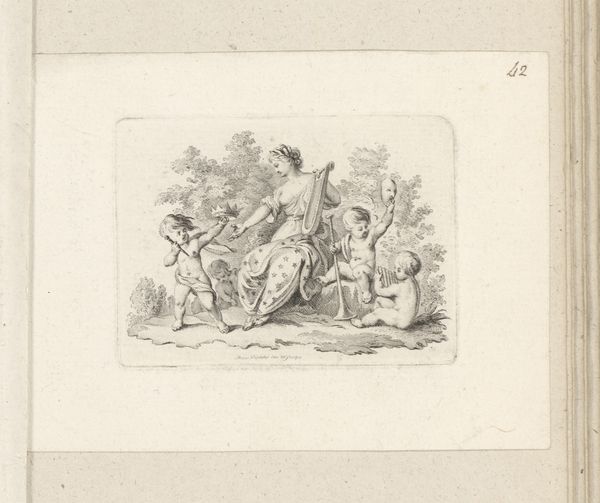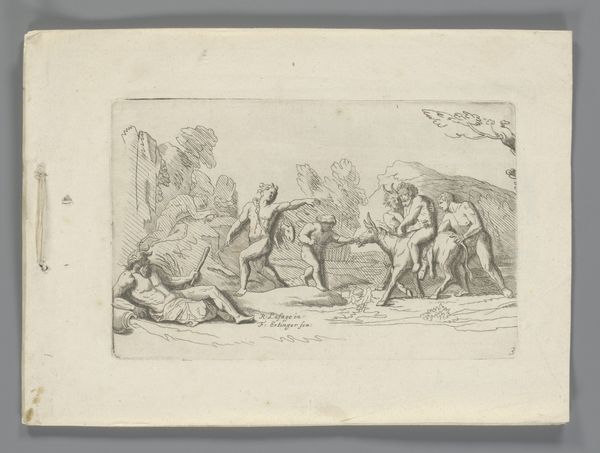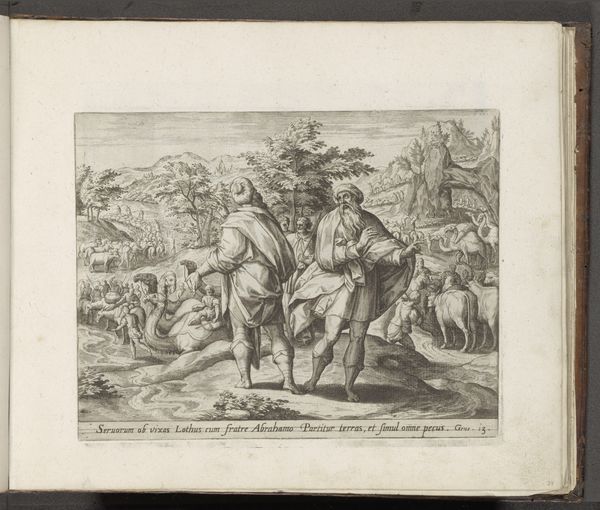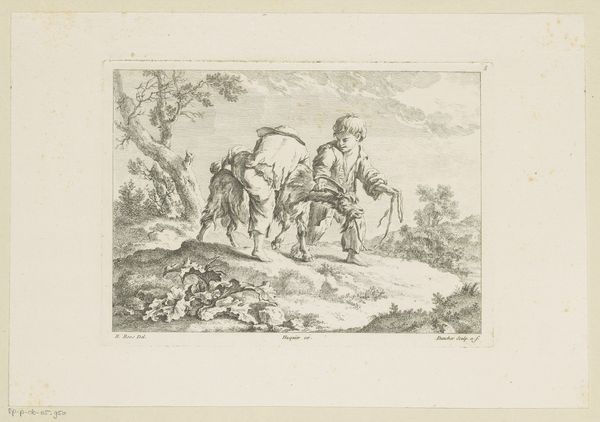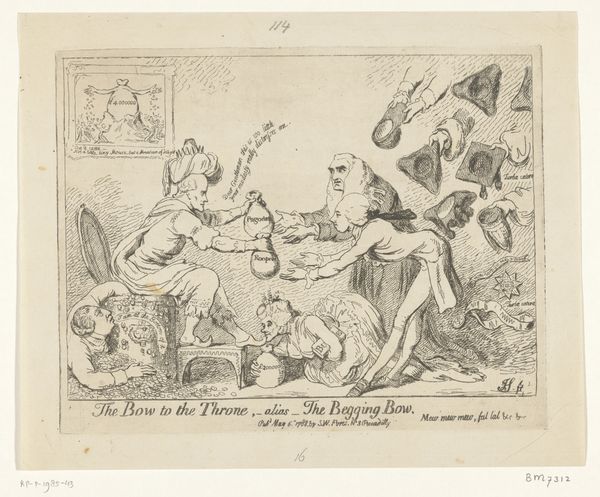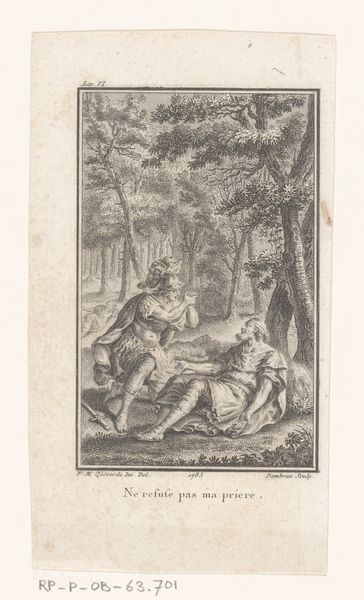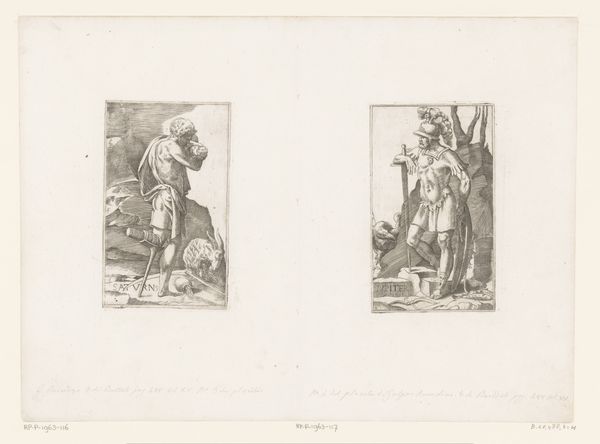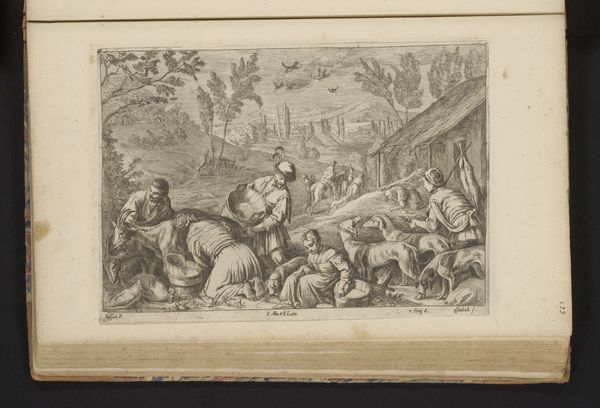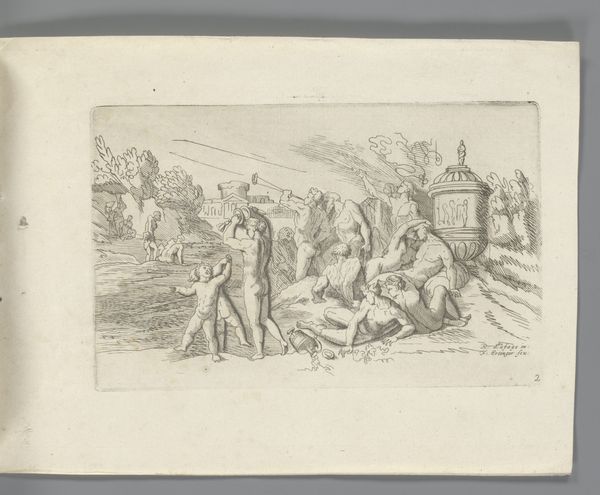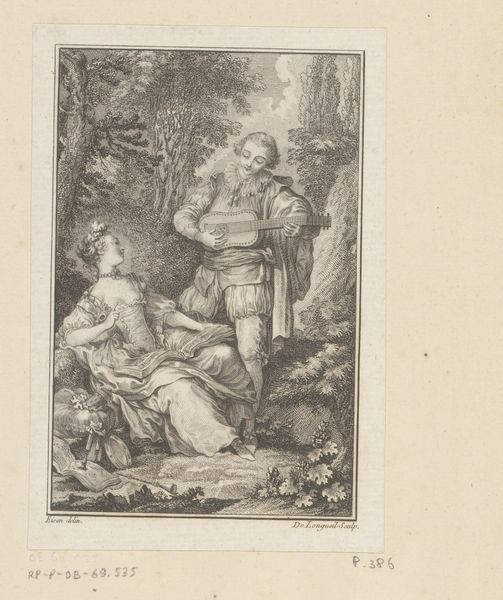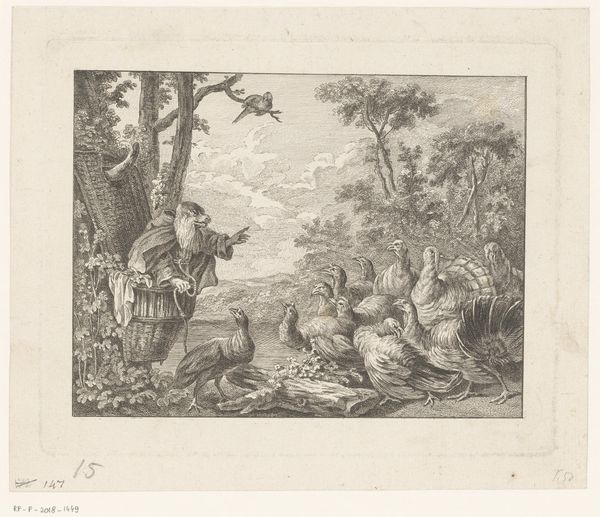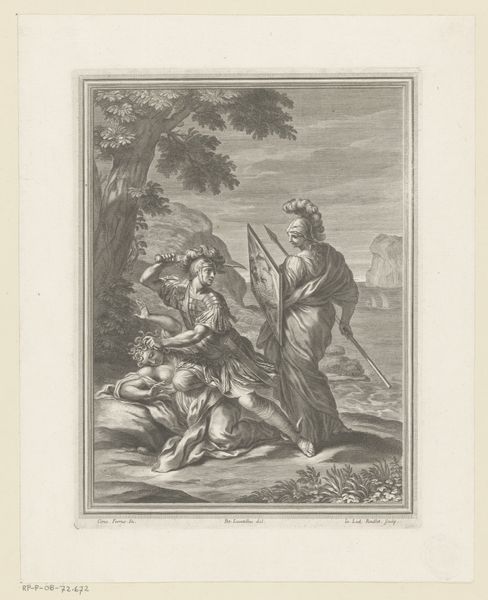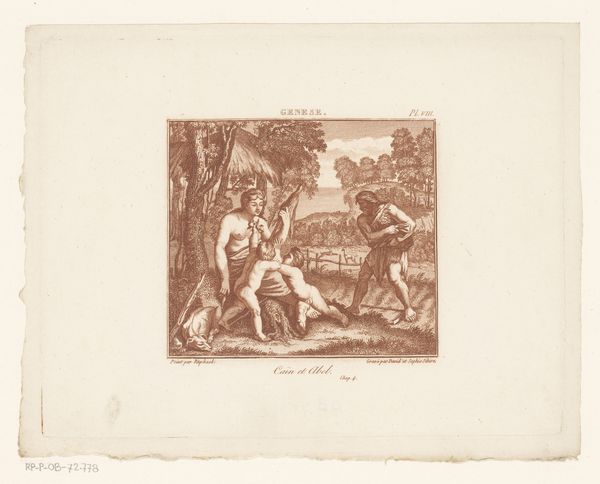
Een militair schiet een pijl naar een wegrennende man (in doos met 43 tekeningen) 1747
0:00
0:00
louisfabritiusdubourg
Rijksmuseum
drawing, paper, pen
#
drawing
#
landscape
#
classical-realism
#
figuration
#
paper
#
pen
#
history-painting
#
academic-art
#
rococo
Dimensions: height 155 mm, width 202 mm
Copyright: Rijks Museum: Open Domain
Editor: This pen drawing on paper, created by Louis Fabritius Dubourg in 1747, is titled "A Soldier Shoots an Arrow at a Man Running Away." The frantic energy of the fleeing figure starkly contrasts with the somewhat bored expression of the lounging man. What’s the historical context behind portraying this type of military pursuit? Curator: The scene resonates with the artistic climate of its time. Think about 18th-century Europe, steeped in classical ideals. Dubourg, while labeled as Rococo, displays academic leanings; this imagery evokes scenes from ancient battles, or even mythological narratives, reimagined within the contemporary context of military and political power. Editor: So, you’re saying the historical is in conversation with a theatrical sensibility? Curator: Exactly! The “military pursuit” here could be less about the realism of warfare and more about portraying power and civic control. Notice how the composition creates drama and narrative. Who is this fleeing figure in relation to the relaxed figure to the side? Editor: Perhaps this is about social stratification? The dynamic figure represents a challenge to the social order. Curator: Interesting. The drawing's role would therefore extend beyond mere documentation. Consider its function: it exists in a box of 43 drawings, indicating it might have been part of a larger series, or study, perhaps intended for a select audience. This context highlights the drawing’s place in the network of patronage, knowledge, and cultural exchange of its time. Editor: So, it’s more than just an image. It's a point on the network for the exchange of ideas about social structure, and art patronage! Curator: Precisely! And thinking about that exchange shapes how we understand it today.
Comments
No comments
Be the first to comment and join the conversation on the ultimate creative platform.
